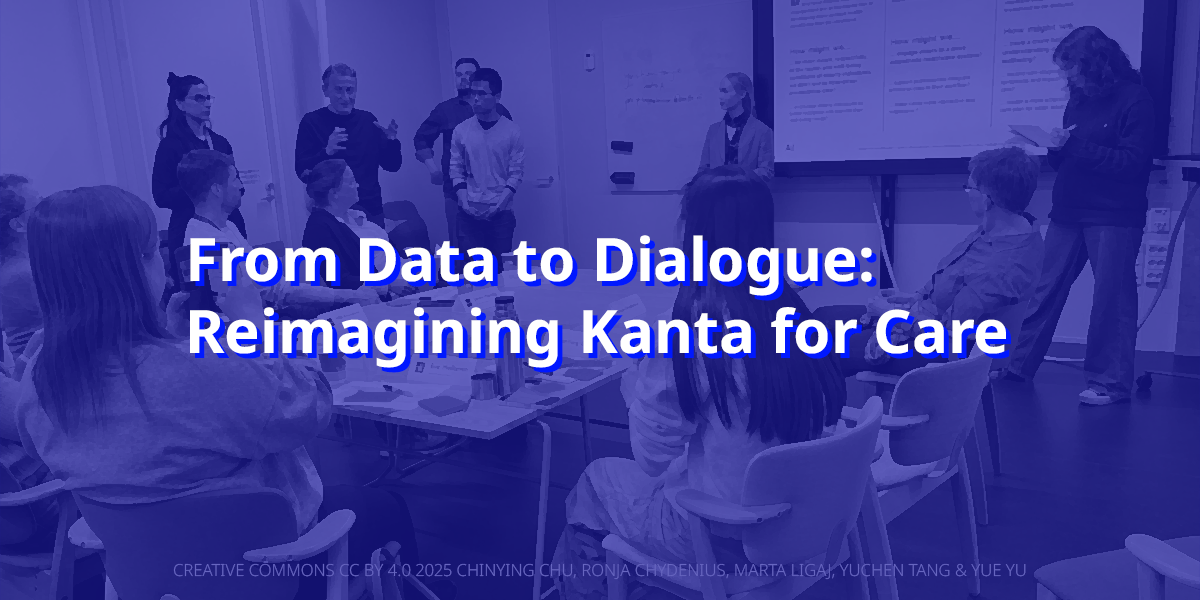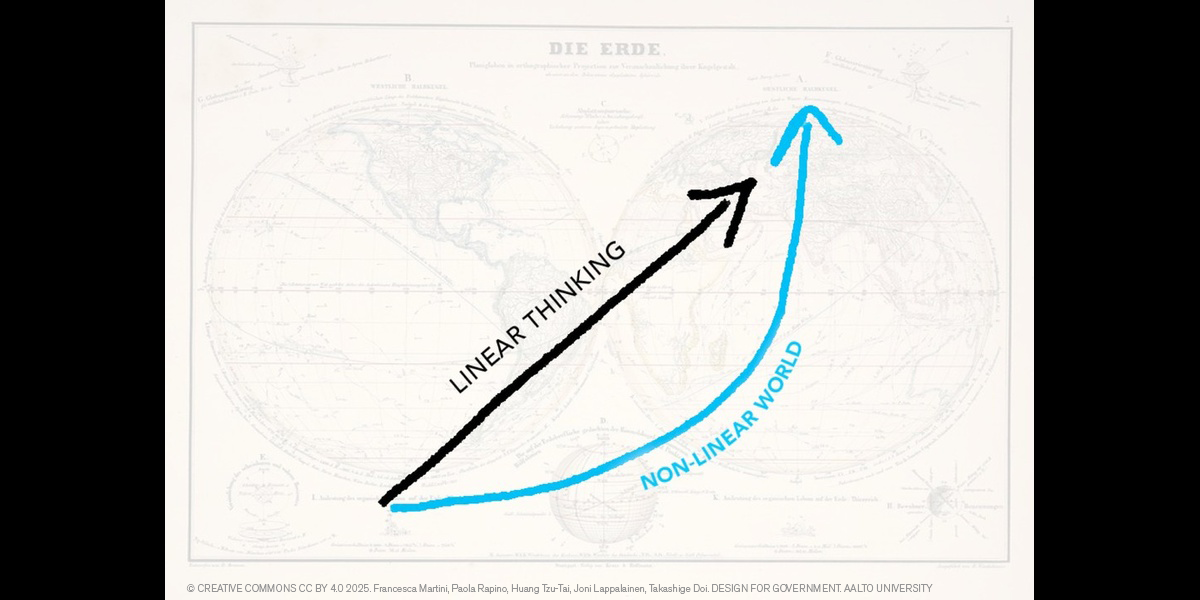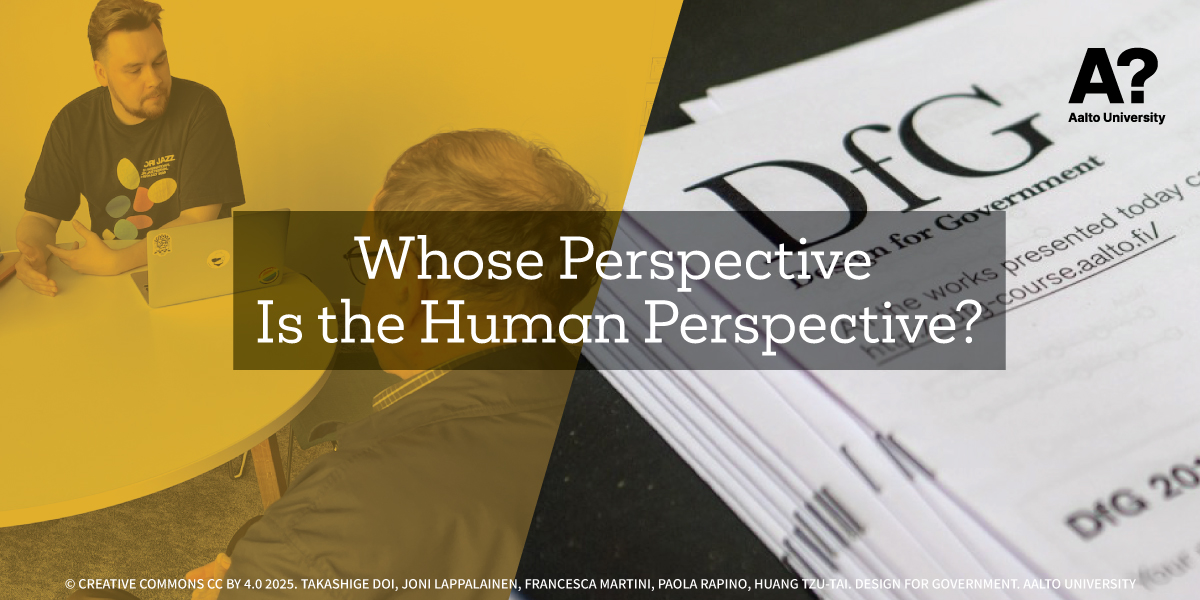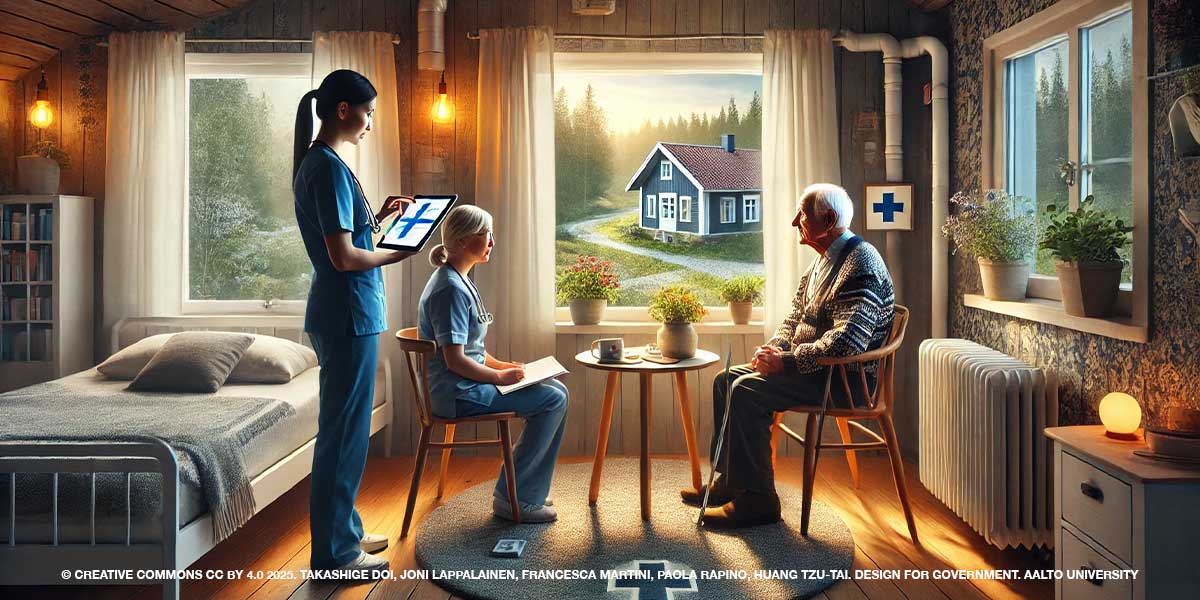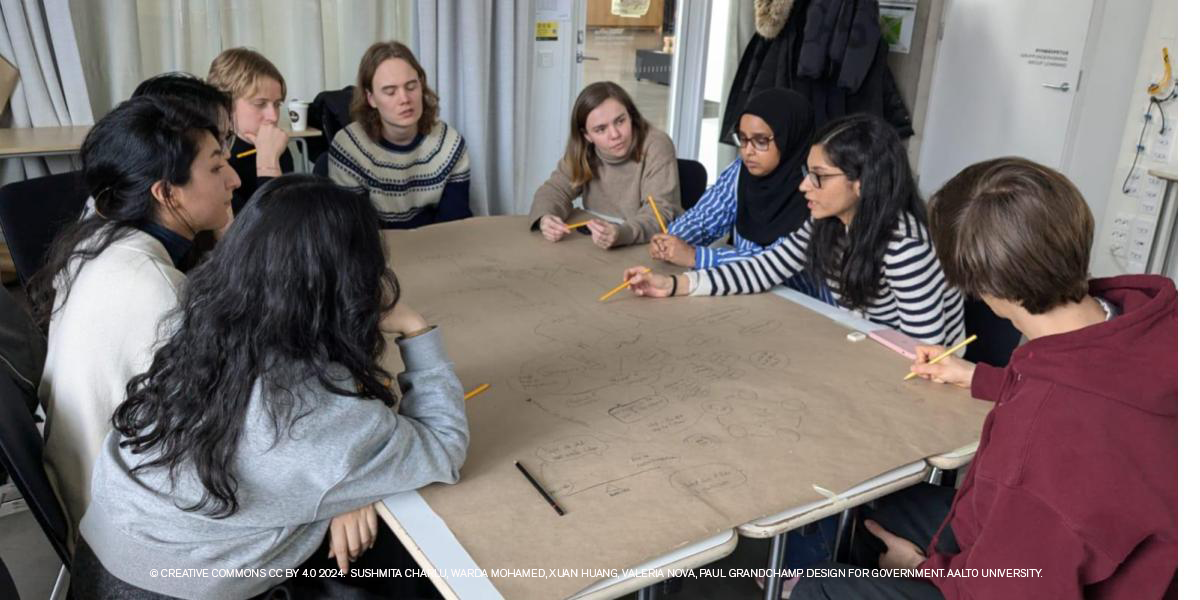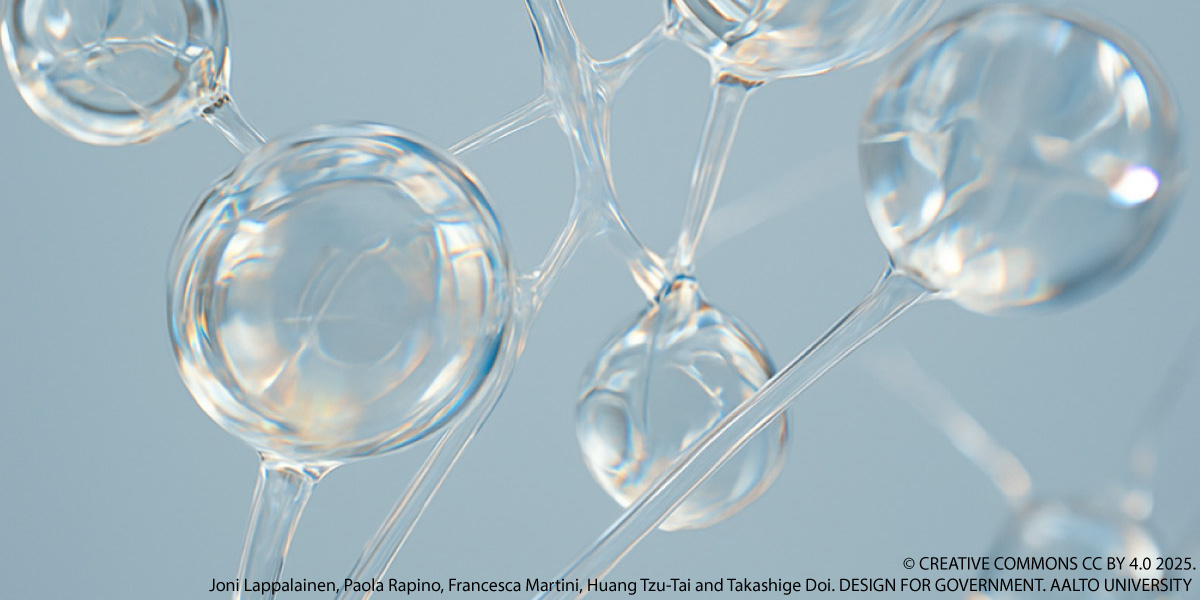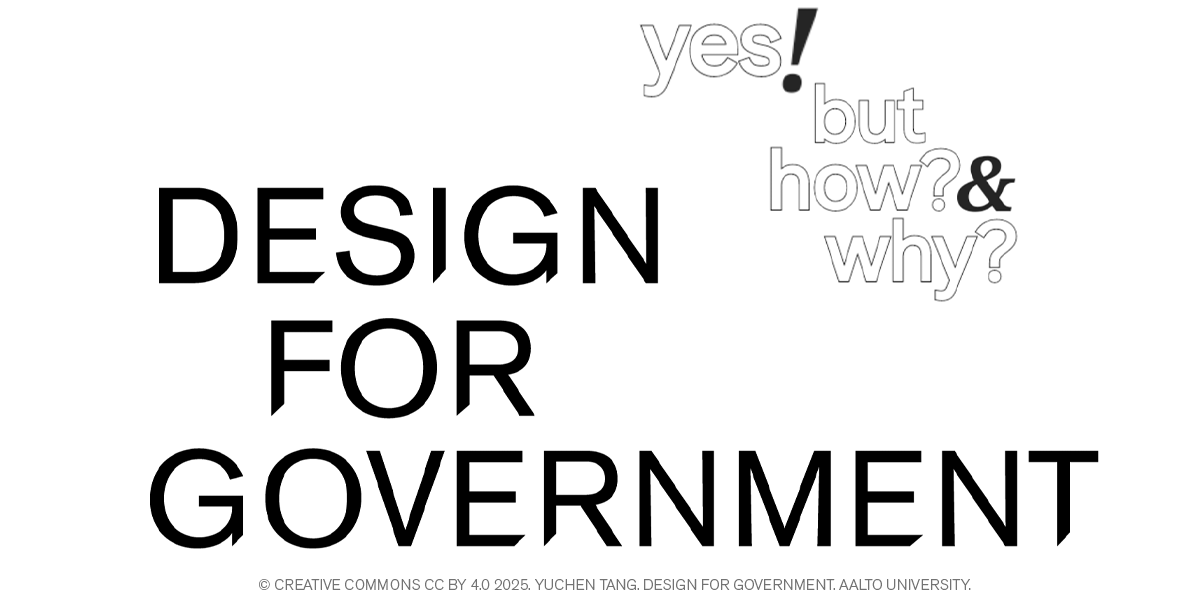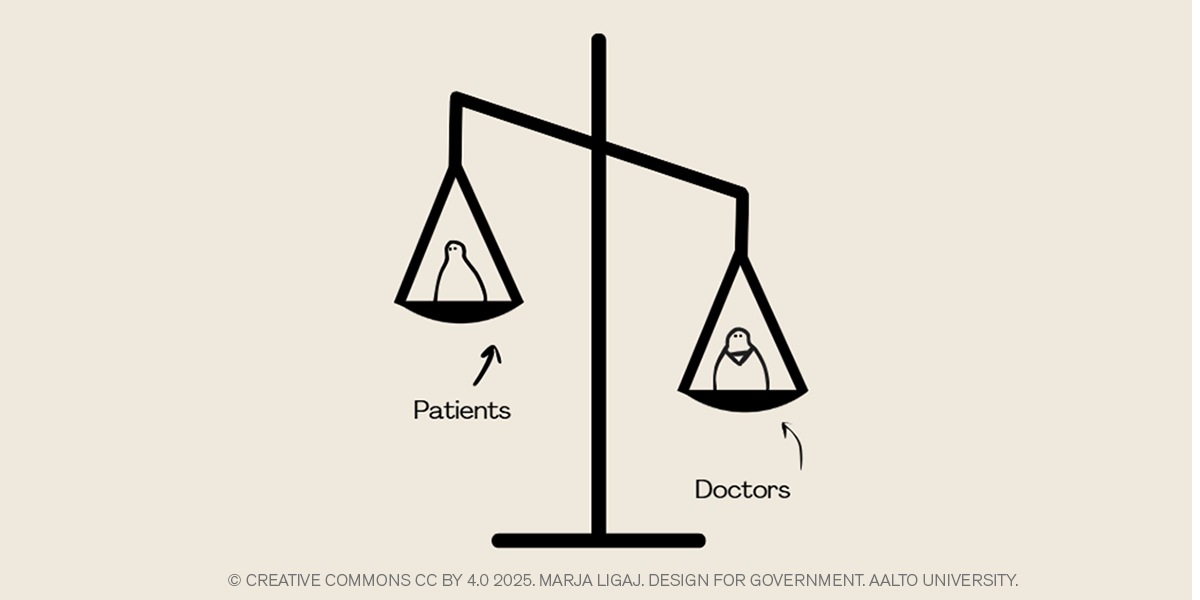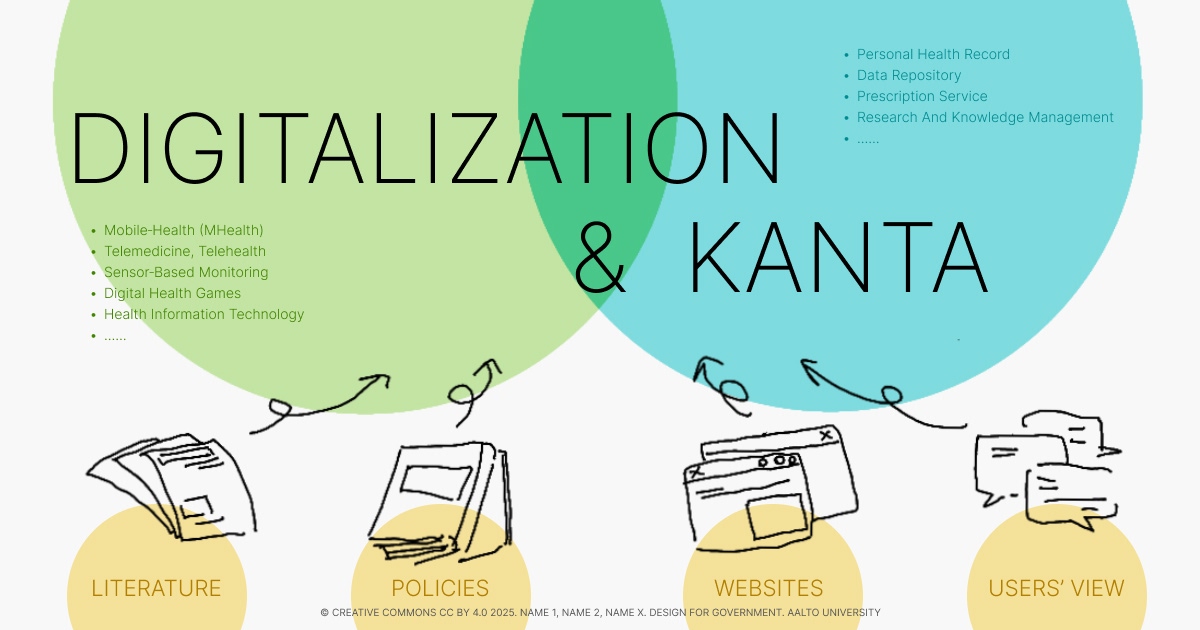From Data to Dialogue: Reimagining Kanta for Care
This project, developed for the Continuity of Knowledge brief within the DfG course, explores how Kanta, Finland’s national digital health platform, can shift from a passive archive to a proactive tool for elderly care. Collaborating with Kela and Kanta, and healthcare professionals, the team focuses on addressing isolation and promoting early intervention for older adults.

